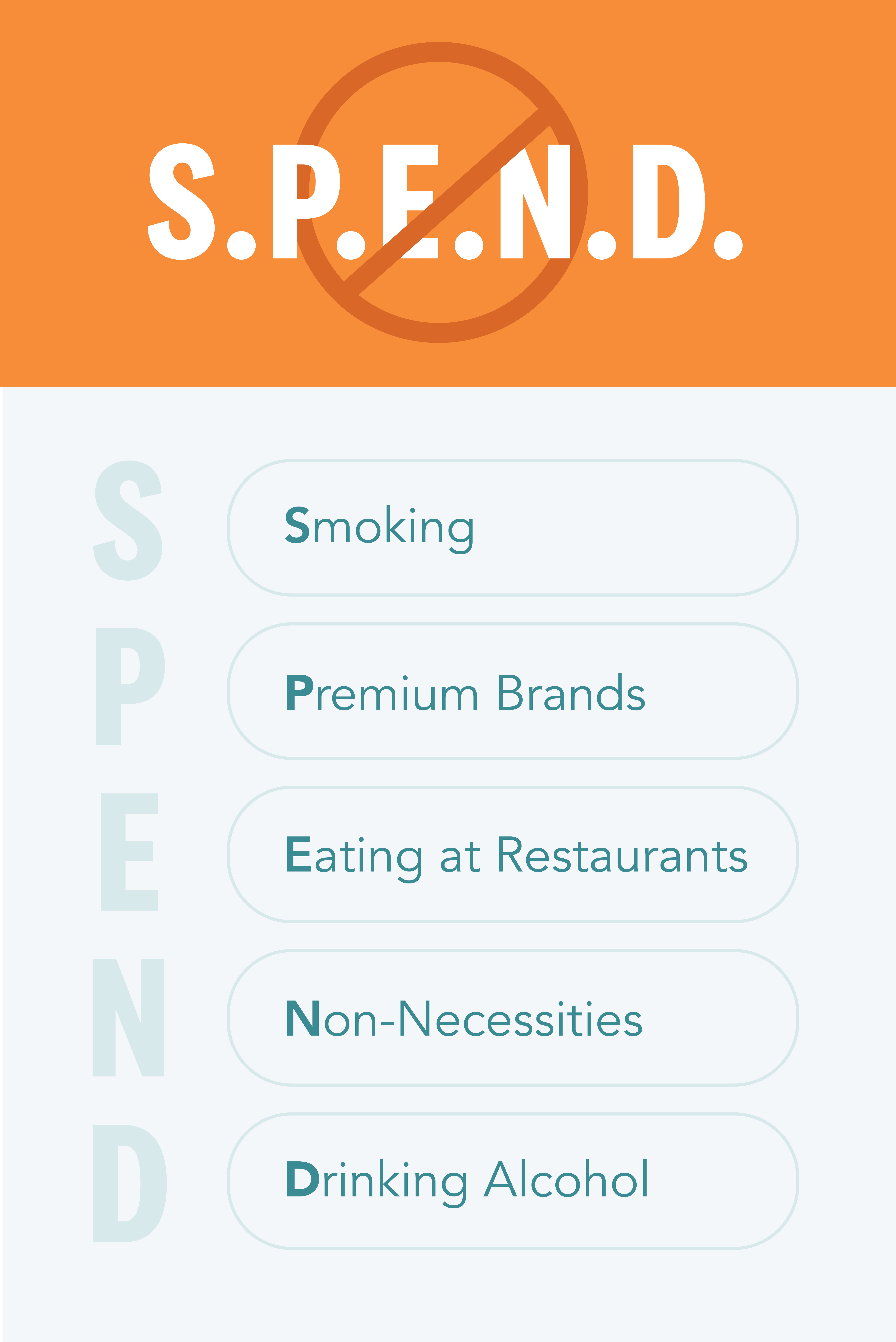What if you could save money and improve your health while doing so? In this article, we discuss how some of the top categories for wasteful spending can often have a negative impact on your wellbeing and why it’s important to put those dollars towards a healthier lifestyle instead.
It may seem difficult at times to invest in your health for a variety of reasons. You may lack the time, money, or motivation to make healthy lifestyle changes. However, many of us often overspend on non-necessities while neglecting or even actively harming our health.
Discretionary spending, or additional spending above and beyond what’s needed, can sneak up on you in unexpected ways. For example, Americans spend an average of $1,497 each month on non-essential items—almost $18,000 each year—and many don’t even realize where all their money goes.
While it’s not always a bad thing to spend money on fun and enjoyable experiences, oftentimes this spending can translate to unhealthy habits or choices that can prove harmful in the long run.
There are many other discretionary spending categories that can negatively impact your wallet and your health. Below, we list 5 of the most common types of non-essentials where the more you SPEND, the less you are investing in your health and wellbeing.

Smoking
Smokers can spend between $1,380 and $2,540 every year on cigarettes. Smoking is also a leading cause of many chronic diseases like cancer, heart disease, stroke, diabetes, and more, leading to higher healthcare expenses. Quitting the habit can save you thousands just on the cost of cigarettes alone. In addition, you can save on healthcare, health insurance, and other related expenses.
Premium brands
Did you know that many generic or store brand items are made by the same company that manufactures the name brand version? That means that generic foods often taste the same and are just as nutritious as the name-brand equivalent. Shopping for generic food brands can help you save 25% to 30% per item, equating to over $1,000 each year.
Eating at restaurants
The average American household spends upwards of $3,000 each year dining out. Restaurants typically markup their meals by 300% or more, meaning you can save a significant amount of money by opting to cook at home instead. In addition, homecooked meals are often much healthier for you than restaurant food.
Non-necessities
Americans spend upwards of $18,000 each year on non-essential items. This can include everything from subscription and delivery services to “toys” and other impulse buys. By revisiting your budget, you can identify some “wants” to reduce your spending on. The extra room in your budget can also reduce the impact that financial stress may have on your mental and emotional health.
Drinking alcohol
Americans spend an average of $188.68 each month on drinks outside the home and another $583 each year drinking at home. Excessive alcohol use is linked to high blood pressure, heart disease, stroke, liver disease, and other health issues. Reducing your alcohol consumption is not only better for your health, but it can put more money in your pocket, too.
Reconsidering these purchases can help you save hundreds or even thousands of dollars each year. Not only that, but reducing your spending on unhealthy habits can transform your health and quality of life for the better as well.
And lastly, with the extra cash you can save from cutting back on non-essential spending, you can start to make healthy investments and take more proactive steps towards prioritizing your wellbeing.
Prescribe FIT is a proven lifestyle health coaching program that helps you improve chronic conditions at home by focusing on the root causes of your issues. Obesity, high blood pressure, heart disease, cancer, diabetes and many knee, hip, ankle, back and joint issues are directly related to your lifestyle choices. Improving lifestyle health is your key to reduced symptoms, living a life without pain, and losing excess weight.
Published on April 27, 2023

